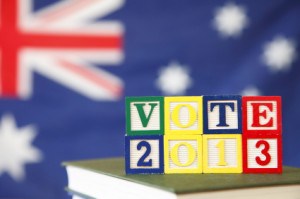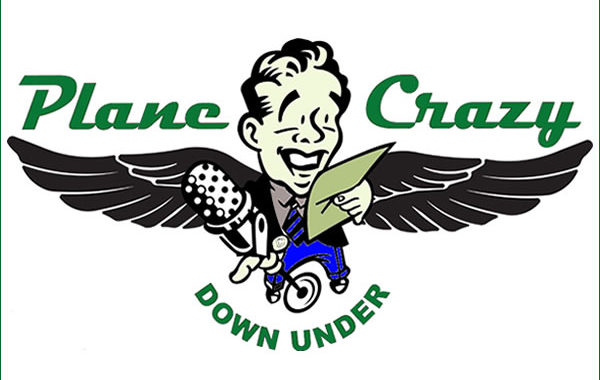
Unfortunately, our cunning plan to wait for the parties to have revealed their policies has not been as successful as we’d like as a) some parties are still holding their cards close to their chest and b) all the candidates are running around frantically to shore up support & win voters to their side.
Oh well, on with the show :)
At 0:03:40, we start with Anthony Albanese from the Australian Labor Party. Anthony is the Deputy Prime Minister, Minister for Infrastructure & Transport, Minister for Broadband, Communications & the Digital Economy and the Leader of the House. While unable to come on the show, Anthony was able to provide written answers to our questions (which we’ve listed below) so we provide some commentary on his answers:
1. How important do you consider aviation to be to Australia’s economic growth, especially with respect to foreign earnings through training and the production & export of aircraft & components? If so, how will your policies help aviation boost economic growth? (eg: Carbon Tax subsidies as per other forms of transport, easier access to VET FEE Help for pilot training, employment legislation changes, boosts for trainee/apprentice programs, reduced user fee costs, etc)
Last year was another record year for aviation in Australia with more than 86 million passengers flying domestically and internationally. This is a 4.5 per cent increase on 2011.
Passenger growth in Australia was more than three times the rate of the United States, which registered a 1.3 per cent increase in passenger numbers in 2012.
We’re committed to working with the sector to build Australia’s aviation industry. Over $120 million in assistance has been provided for students undertaking aviation-related studies. This assistance has provided more than 12,000 places for students to gain the qualifications necessary to build Australia’s aviation industry.
Federal Labor has announced we’re abolishing the carbon tax and moving to an Emissions Trading Scheme next year, which will reduce the cost for the sector further.
2. Do you consider aviation to be important to the development & prosperity of country Australia? If so, how will your policies help boost aviation for rural areas? (eg: route subsidies, rural airport development, etc)
Absolutely. That’s why Federal Labor has injected more than $261 million of assistance into regional and remote aviation – more than five times that spent by the former Coalition Government in the preceding six years.
We are upgrading:
- 47 regional airports in every state
- 237 remote airstrips, making them safer and guaranteeing medical services
There is more money and support going into regional aviation than ever before. Growth in total passenger movements at regional airports continues to be higher than at airports in major cities, growing at 4.6 per cent versus 3.5 per cent respectively.
In addition, the number of regional airports receiving services increased by 31 airports to 171 last year – the highest in almost a decade
3. Will Aviation have its own minister? Or even a dedicated full-time Transport minister? If aviation (& transport in general) are important factors in the economic growth of Australia, does it not make sense to have a dedicated portfolio managed by a single minister?
I’m not pre-empting future decisions about portfolios – my focus is on securing another term for the Rudd Labor Government.
4. Will the issues relating to CASA & the ATSB that were raised by the recent Senate inquiry into the PelAir accident be addressed? If the two months between the report being produced & parliament going into caretaker mode was insufficient for a response to be generated it would indicate significant issues have been raised & need to be addressed. What priority will this have after the election?
A re-elected Labor Government will provide a response to the Inquiry once the findings have been given full consideration. In the meantime, the ATSB has invited the Canadian Transportation Safety Bureau to undertake an independent review of the ATSB investigation methodologies and processes.
5. Will a decision on Sydney’s second airport be made in the first year of the new government or will still more studies & delays be incurred?
I have consistently said Sydney needs a second airport sooner rather than later.
6. What steps will be taken to reduce the impact of residential encroachment on airports, eg: Bankstown, Archerfield, Moorabbin, etc.
The Federal Labor Government has championed the National Airports Safeguarding Framework to guide land use planning reform around Australian airports. The Framework will help ensure that in the future both airports and residents of suburbs around airports are safeguarded from inappropriate off-airport development. Airports are important transport, economic and employment hubs, significantly contributing to our social connections and economic productivity.
The framework was adopted by the Standing Committee on Transport and Infrastructure (SCOTI) and each state and territory government will now apply the framework in a manner appropriate to their own planning rules.
The Government wants to see more sensible planning decisions are made around airports – that is why we established the Planning Coordination Forums (PCFs) at each federally leased airport. These forums enable the airport and the federal Government agencies to engage the state government and local councils in regard to planning decisions around the airport.
Then, at 0:23:40 we have a chat with Senator Lee Rhiannon, the Transport spokesperson for The Greens. We asked her the same set of questions as those above but (as you might expect), her answers were quite different to those from Anthony Albanese.
Finally, at 0:41:38 we review the Coalition’s aviation policy document. We had tried to arrange a chat with Warren Truss from the Liberal National Party as we did during the last Federal Election in 2010 but, unfortunately, at the times he was available to chat with us, we were stuck away from the studio :(
Warren is the Leader of the Nationals and the Shadow Minister for Infrastructure and Transport and it was his department that released the Coalition’s aviation policy document. If you want to get all the details the Coalition have released about this policy, you should read their PDF format document.
Of interest, the Regional Aviation Association of Australia (RAAA) have issued a media release stating that the Coalition’s aviation policies are a “good start and show that the Coalition has at least been listening to industry concerns, concerns that have been shared with the Shadow Minister over a number of years.”
So there you go. While we didn’t get to chat with all the politicians we were chasing, we did at least get sufficient information from them to review and discuss for this episode. Perhaps next election we’ll be able to arrange our times more in advance to ensure we can bring you their commentary. Hopefully by then, we won’t also still be wondering if there’ll ever be a second airport in Sydney :)
